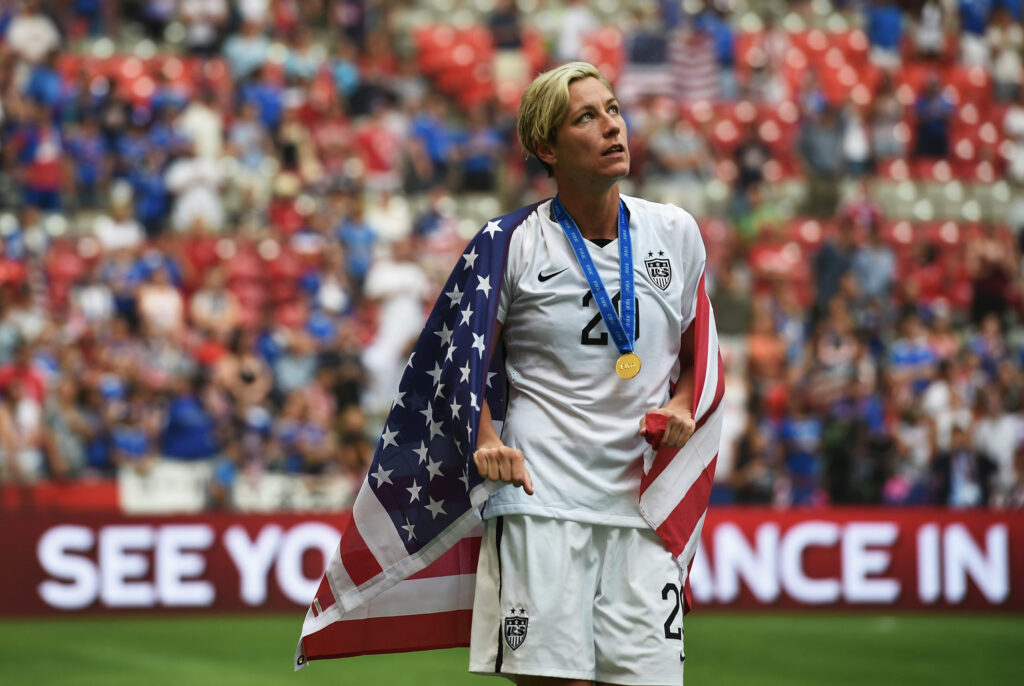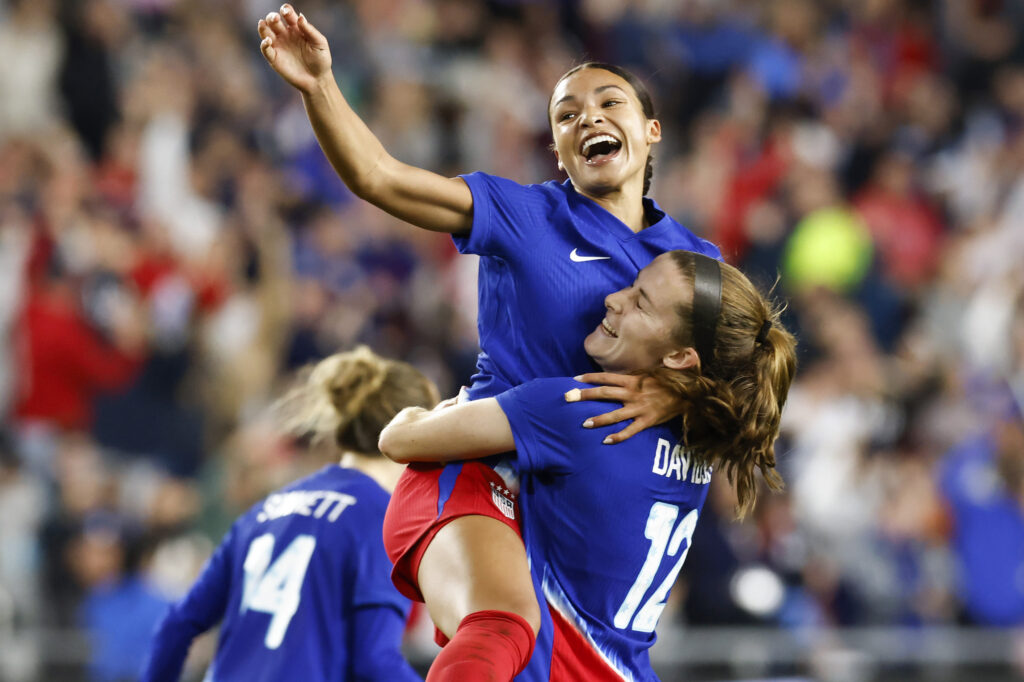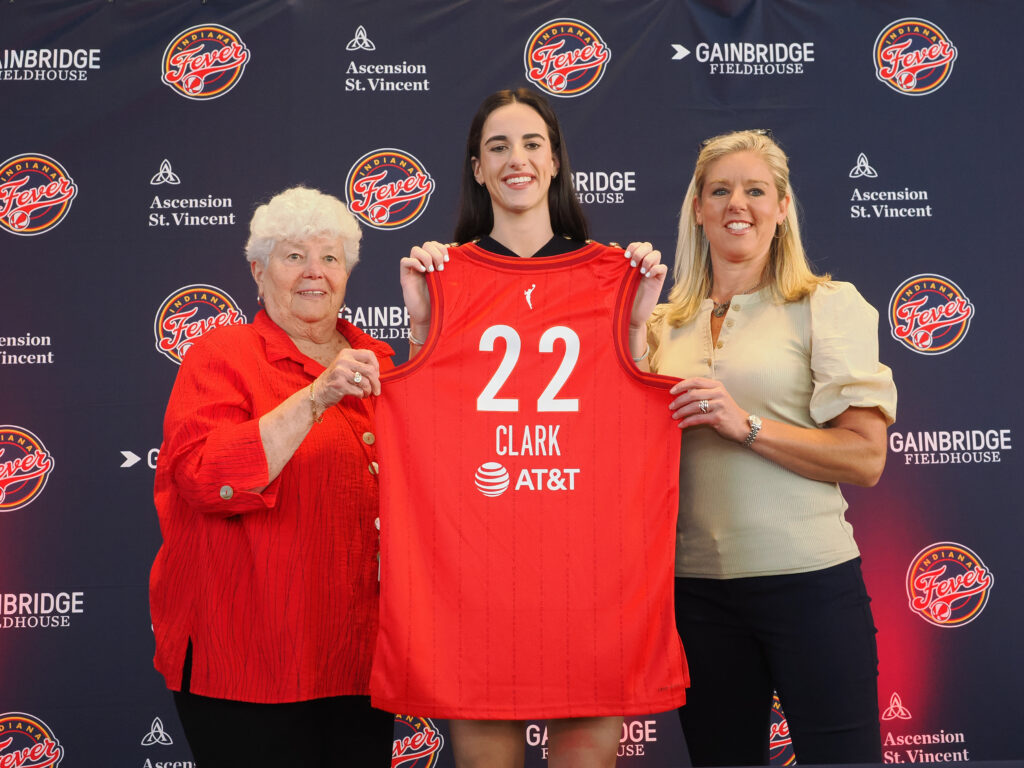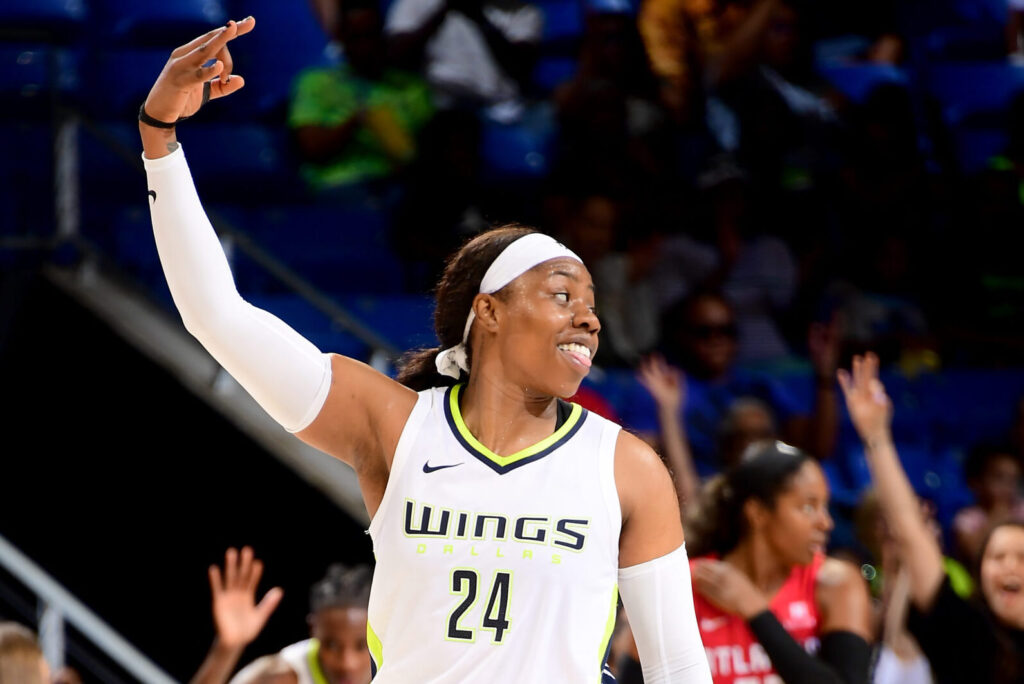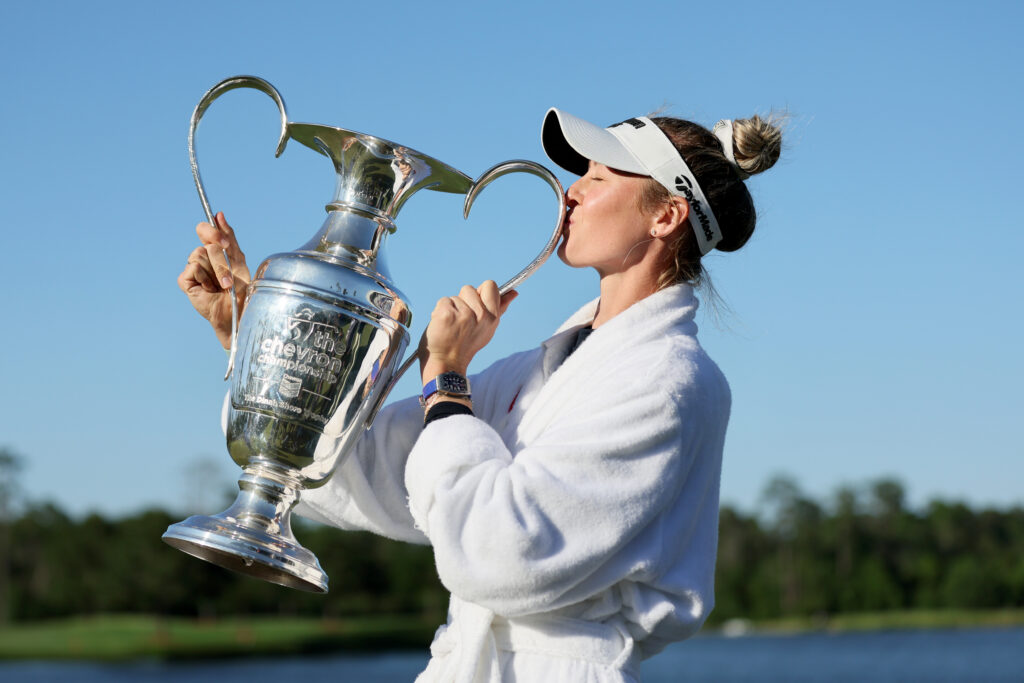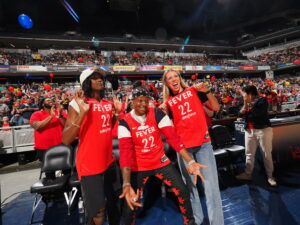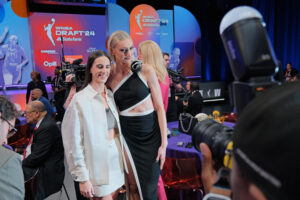“If you can see it, you can be it” has become a rallying cry for NWSL expansion club Angel City FC and Abby Wambach, one of the team’s founding investors.
The soccer icon is turning that mantra into action with her latest project. Wambach, who sits on Gatorade’s Women’s Advisory Board, is teaming up with the company to launch a new campaign dedicated to equal opportunities in sport. Gatorade’s “Fuel Tomorrow” initiative will include funding for community programs, access to sports facilities and resources and training for coaches on equity and inclusion.
With “Fuel Tomorrow,” Wambach says Gatorade put “their money where their mouths are,” telling Just Women’s Sports, “They didn’t just try to check a box with the Advisory Board; they’re also putting their resources, their real hard-earned money towards creating a better future and a better tomorrow for those who don’t have as many opportunities.”
Gatorade’s new program involves a $10 million initial investment in national organizations such as Athlete Ally, Good Sports, Honest Game Foundation, Laureus USA and the Women’s Sports Foundation, as part of its push for equity in sports.
“When they approached me last year about being a part of the Advisory Board, before they could finish the sentence I said yes because I do think stories and experience, not just from mine but from a whole diverse group of people, is really important to be able to drive the true kind of change that can be lasting and systemic changing,” Wambach says of Gatorade, which also signed on last year as a founding partner of Angel City.
While the former United States women’s national team star believes in the campaign’s mission deeply, citing the statistics and science behind the benefits of sport, specifically for women, she also knows it is simply good business to invest in sports.
Individually, Wambach says having a corporation recognize her as a leader is validating, especially when their vision aligns with her hopes and dreams for the growth of the game.
“You spend your whole life working for something, and in some ways, when the corporate world turns to you and says, ‘I see you,’ it’s like, ‘Oh, maybe this has all been worth it. Maybe we are going to see some real change,'” she says. “And Gatorade is kind of proof.”
As a part of the collaboration, 10 percent of Gatorade’s sponsorship funds will go toward developing conduits for female coaches, a point of pride for Wambach.
“The truth is women’s sports is an institution that has been built inside of a man’s world,” she says. “It’s been built by men for men, so you think, ‘How can women’s sports survive in this environment? This structure was built for men.’ But it needs to have more female leaders at the helm. I don’t think that there are better candidates to be in leadership positions than women inside of women-led teams.”
ACFC and Gatorade’s investment in the women’s coaching pipeline is especially relevant now, as the NWSL continues to reel from a season of unprecedented coaching turnover. Many of the coaches who were fired or resigned were men accused of emotional, sexual or psychological abuse.
Most recently, the NWSL and U.S. Soccer have come under fire for their handling of the Rory Dames case. The former Red Stars head coach held onto his position despite numerous complaints from players, as chronicled in two separate Washington Post reports.
One of those players was Christen Press, the USWNT star striker who brought allegations of Dames’ abuse to U.S. Soccer while she was playing for the Red Stars. Press filed an official complaint to the federation in 2018. Carlos Cordeiro, who was U.S. Soccer president at the time, said in a recent letter that he was “not aware of either Christen’s allegations of abusive coaching or any investigation into her allegations by the Federation.” Cordeiro is currently running against Cindy Parlow Cone in the U.S. soccer presidential race to try to take back the position.
Wambach says that type of shuffling of responsibility is precisely what needs to change in women’s soccer.
“The way that progress and change happens is enough people, some brave ones, come forward, and they tell their stories,” she says. “And what we need to do as a community around these women is to support them, to give them some kind of help in their healing, and one way we can really truly help those that have been traumatized … is to believe them.
“When somebody brings accusations forward, there needs to be due diligence to figure out where it went wrong. And I don’t care if an e-mail never got to Carlos Cordeiro’s desk, he was still the president when Christen Press made these claims, and so he bears that responsibility. It is his fault that he didn’t create an environment inside of his system, inside of his world, that those around him didn’t tell him.”
As urgently as Wambach advocates for an overhaul of the systemic issues within American soccer, the 41-year-old is as fired up as ever about the progress players are making on the field.
USWNT head coach Vlatko Andonovski has welcomed an influx of new talent this year, calling in young stars like Trinity Rodman, Catarina Macario and Ashley Hatch to first training camp of 2022.
Wambach, the all-time leading goal scorer in USWNT history, knows her way around the national team better than most. Still, she says the USWNT head coaching position is “truly a job that I would never want,” especially when it comes to navigating the delicate balance of naming veterans and young players to tournament rosters.
With the SheBelieves Cup set to kick off on Thursday, the narrative around the USWNT seems to be the passing of the torch to the next generation. To that, Wambach says not so fast.
“The Megan Rapinoes and the Becky Sauerbrunns to me, there is no question that they maintain their status on the national team, that they are still consistent players getting called in because the things that they can teach some of those younger players, to me, outweighs even sometimes their performance on the field,” she says. “And of course, they still have to perform, but you still have to weigh in that veteran experience, the conversations, the teaching that happens from a veteran’s perspective.”
Wambach credits the evolution of the domestic game for the USWNT’s loaded talent pool. The leagues Wambach came up in, before the NWSL was formed in 2013, were much different in size and scope.
“In the NWSL, the players are better, the teams are better, its way more competitive, it’s way more professional. And so, to me, it feels like it’s going to be even harder and harder year over year for the coaching staff to make that decision,” Wambach says of the USWNT roster.
The NWSL’s progression is something Wambach welcomes emphatically as an owner of Angel City, set to make its debut this season.
“We have so many amazing teams in and around the Los Angeles area, and we want Angel City to be a top-tier team. We want Angel City to bring home championships,” Wambach says. “For me, watching the Rams win [the Super Bowl] the other day was just fuel. It gives all those players an idea of how the city is going to show up for them.”
As tends to happen in women’s sports, the discussion of progress all circled back to investment, with Wambach highlighting the significance of Gatorade’s backing of ACFC.
“It’s a big deal. This league, like all leagues, are funded from sponsors and from sponsorships and partnerships like the one Gatorade has with ACFC,” Wambach says.
“Bring all the sponsors.”
Clare Brennan is an associate editor at Just Women’s Sports.
